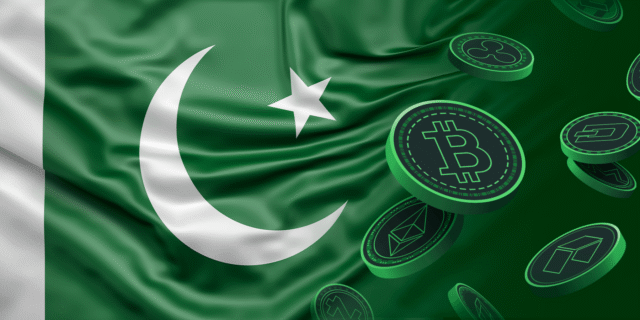In recent years, blockchain technology has rapidly gained attention worldwide for its transformative impact on various sectors, particularly finance. Pakistan, too, is witnessing a shift in its financial ecosystem, thanks to the growing influence of blockchain-based solutions. With increasing adoption among the youth and tech-savvy professionals, this technology is creating new opportunities and efficiencies that were once unimaginable.
From Traditional Banking to Decentralized Finance
Pakistan’s financial infrastructure has long faced challenges such as limited banking access in rural areas, delayed transactions, and lack of transparency. Blockchain has the potential to address these gaps by offering decentralized, fast, and secure financial services. Through peer-to-peer transactions, Pakistanis can now send and receive money without relying on banks, reducing costs and increasing accessibility.
This is particularly beneficial for the large unbanked population. Using just a smartphone and internet connection, users can access digital wallets and blockchain platforms that offer secure and real-time financial interactions.
Accelerating Financial Inclusion
One of the most promising impacts of blockchain in Pakistan is its ability to drive financial inclusion. With over 100 million mobile phone users and rising internet penetration, the country is poised for a digital financial revolution. Blockchain technology makes it possible for citizens—especially in remote areas—to save, invest, and transact in ways that were previously difficult or even impossible.
From micro-financing to low-cost remittances, blockchain applications are bridging the gap between the underserved and the formal economy. Government programs can also benefit from transparent disbursement of subsidies and aid using blockchain to avoid fraud and mismanagement.
Link to Crypto Adoption
As blockchain paves the way for decentralized finance, it has also fueled growth in the Pakistan Crypto Market. Over the past few years, Pakistan has risen to become one of the world’s top countries in terms of crypto adoption. This boom is largely driven by the youth and freelance workforce looking for alternative financial tools outside of traditional systems.
With blockchain as the foundation, cryptocurrencies are now being used for cross-border payments, investments, and even donations—making the digital economy more accessible to the average Pakistani.
Blockchain in the Medical and Health Sector
Beyond finance, blockchain is also finding applications in Pakistan’s medical services. Healthcare institutions are exploring blockchain for managing digital health records, ensuring data integrity, and improving transparency in medical billing. In a sector where accurate records can save lives, blockchain can ensure secure data sharing among hospitals, labs, and insurance providers.
Furthermore, blockchain-based platforms are being developed to track the authenticity of medicines, reducing the circulation of counterfeit drugs. With secure tracking from manufacturer to patient, this innovation can improve trust in Pakistan’s healthcare system.
Regulatory Landscape and Future Outlook
Currently, Pakistan’s regulatory framework for blockchain and cryptocurrency is in its early stages. While there have been concerns about the misuse of digital assets, there’s growing awareness among regulators about the potential of blockchain to modernize financial services.
If appropriate legal frameworks are introduced, blockchain could revolutionize Pakistan’s financial system by enabling transparency, enhancing trust, and cutting down operational costs across institutions.
Conclusion
Blockchain is more than just the backbone of cryptocurrency—it is a transformative force across sectors. In Pakistan, it is reshaping the financial landscape by promoting inclusion, transparency, and efficiency. As the government and private sector continue to explore its possibilities, blockchain stands as a powerful tool for driving sustainable development in finance, healthcare, and beyond.
By leveraging this technology responsibly, Pakistan can position itself as a forward-looking, digitally empowered nation in the global economy.







